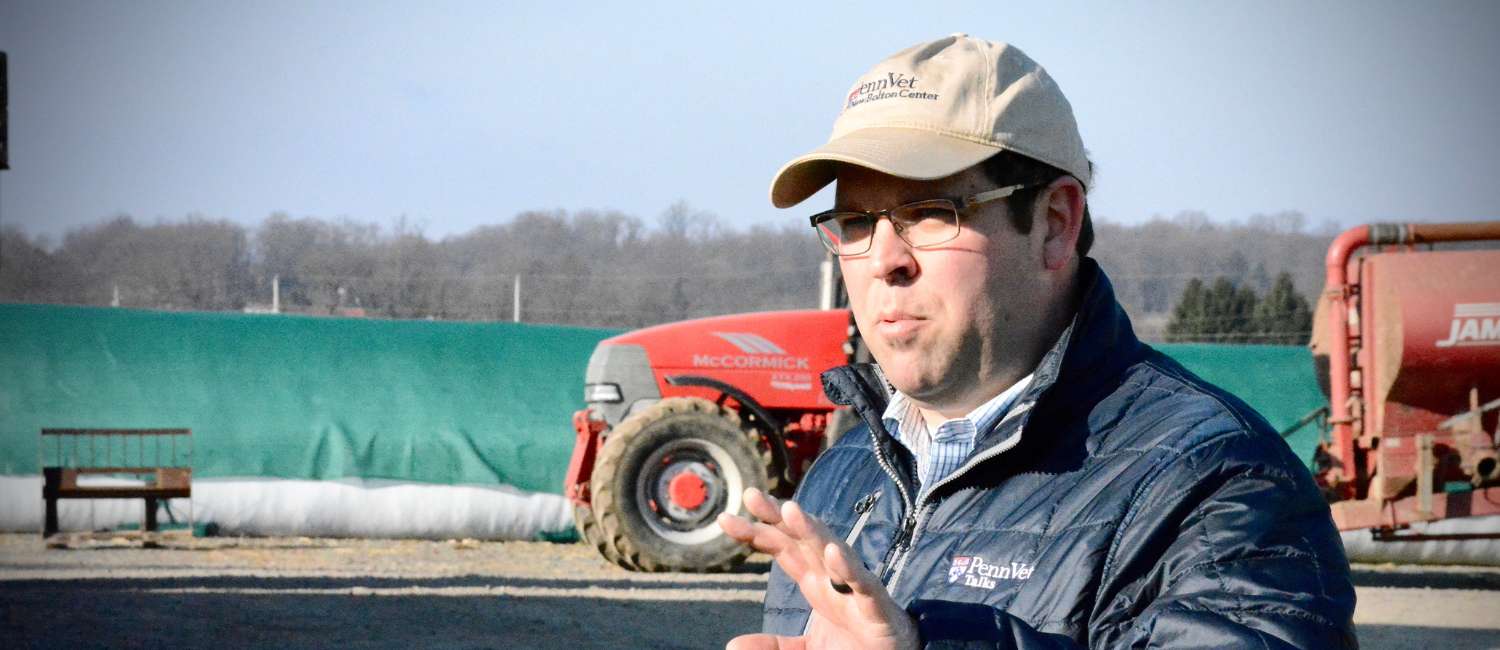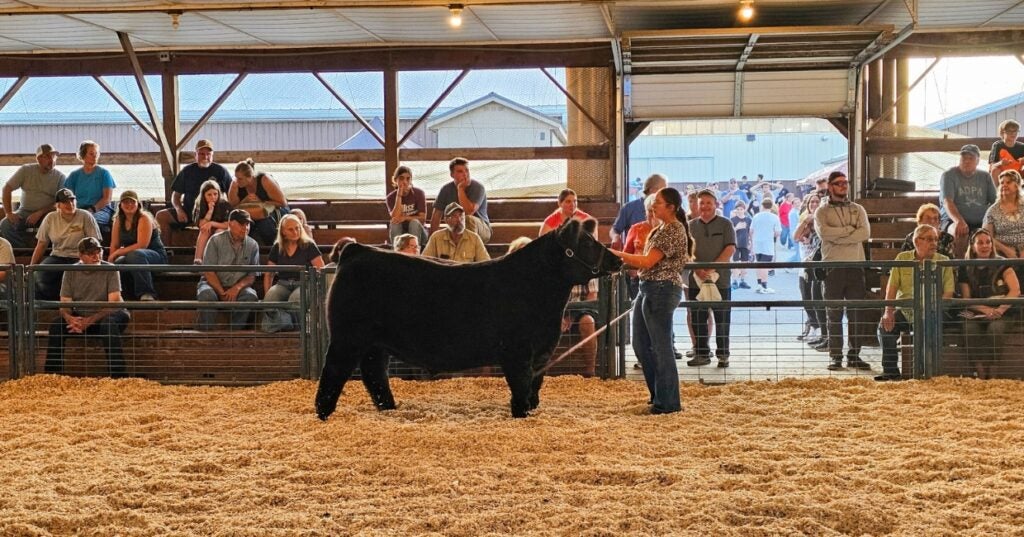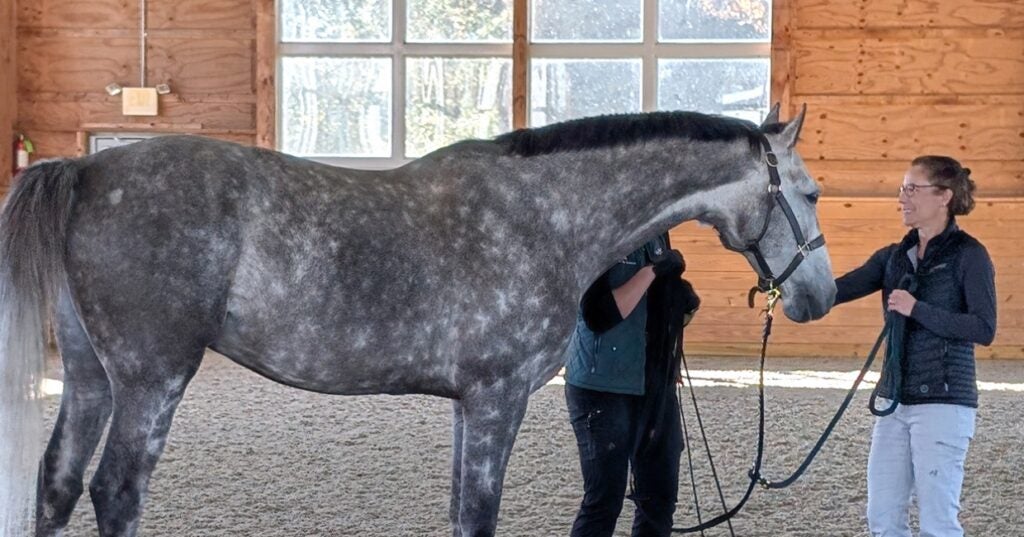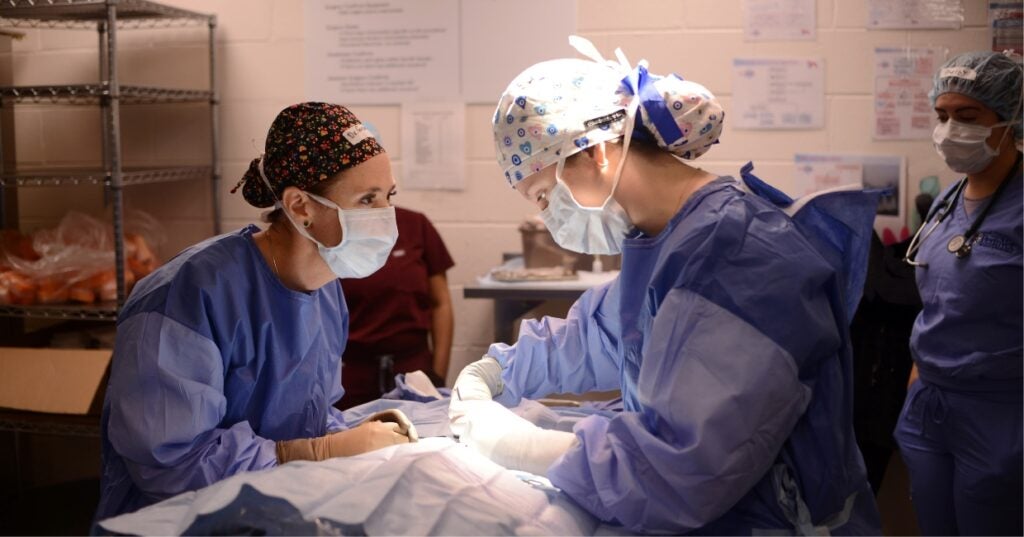University of Pennsylvania’s School of Veterinary Medicine Receives Grant to Develop Veterinary Training Program for Rural Communities

Associate Professor of Clinical Dairy Production Joseph S. Bender and Dairy Production Fellow Sarah Rassler at the University of Pennsylvania’s School of Veterinary Medicine (Penn Vet) have received a $248,000 grant from the U.S. Department of Agriculture’s National Institute of Food and Agriculture to establish a comprehensive program designed to train recent veterinary graduates and prospective veterinarians in advanced production techniques. The program represents a vital step towards improving the sustainability of rural, animal agriculture communities.
Food animal veterinary service providers are integral to the success of livestock producer and animal production systems, and their symbiotic relationship directly impacts each other’s survival. Unfortunately, counteractive pressures have developed over time, leading to producer failures and the dilution of livestock availability, which in turn increases the time and cost of providing veterinary services. This cycle contributes to veterinary shortages, veterinarian burnout, and a daunting environment for students interested in rural veterinary medicine.
“The primary goal of this project is to enhance the economic viability of dairy producers, recognizing that their success is intertwined with the economic health of rural communities and industry partners,” said Bender who is co-leading the project. “By equipping recent veterinary graduates with advanced production medicine skills, connecting current veterinary students with experienced mentors, and engaging rising high school students, Penn Vet seeks to break the adverse chain of circumstances and create a positive impact on rural veterinary medicine.”
The grant is awarded through the National Institute of Food and Agriculture’s Veterinary Services Grant Program (VSGP) Awards. The VSGP, authorized by the 2014 Farm Bill, is designed to help mitigate food animal veterinary service shortages in the U.S. It funds education and extension activities that will enable veterinarians and veterinary students to gain specialized food animal skills and to enhance practices.
Related News

New Bolton Center Surgeons Come Through for Howee the Steer and his Girl
Mallie Touchton was always a farm animal kid. Since she was 8, Mallie was raising and showing her own market livestock – pigs, goats, and dairy calves. Even though she…

Behind the Breakthroughs: Amy Johnson
Balancing clinical care with scientific inquiry, Penn Vet’s Amy Johnson leads efforts to decode the complexities of neurologic diseases in horses

Penn Vet’s Enhanced Approach to Teaching Primary Care Surgery Aims for Career-Ready Graduates
Brooklyn, a white Maltese dressed for warmth in a green frog hoodie, lay in anesthetized slumber under the bright lights of Ryan Hospital’s junior surgery suite. On one side of…
About Penn Vet
Ranked among the top ten veterinary schools worldwide, the University of Pennsylvania School of Veterinary Medicine (Penn Vet) is a global leader in veterinary education, research, and clinical care. Founded in 1884, Penn Vet is the first veterinary school developed in association with a medical school. The school is a proud member of the One Health initiative, linking human, animal, and environmental health.
Penn Vet serves a diverse population of animals at its two campuses, which include extensive diagnostic and research laboratories. Ryan Hospital in Philadelphia provides care for dogs, cats, and other domestic/companion animals, handling more than 30,000 patient visits a year. New Bolton Center, Penn Vet’s large-animal hospital on nearly 700 acres in rural Kennett Square, PA, cares for horses and livestock/farm animals. The hospital handles more than 6,300 patient visits a year, while our Field Services have gone out on more than 5,500 farm service calls, treating some 22,400 patients at local farms. In addition, New Bolton Center’s campus includes a swine center, working dairy, and poultry unit that provide valuable research for the agriculture industry.

